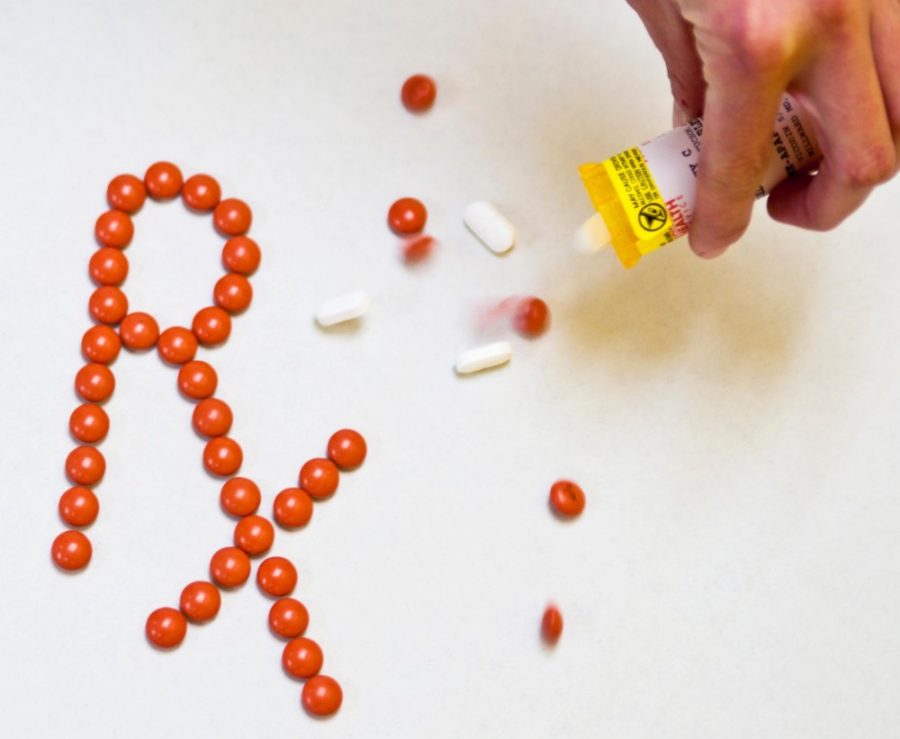Antibiotics, antifungals and antidepressants are among the most-sold prescription drugs on campus, according to Campus Health Service data.
The four most frequently prescribed medications are Keflex, an antibiotic; ProAir, for asthma; Z-pak, an antibiotic; and Diflucan, an anti-fungal treatment.
Oral contraceptives are also dispensed often, but not included in the top-sellers list, said Kim Birmingham, the chief pharmacist at Campus Health.
Depending on which viruses are going around each semester, this number may or may not stay constant, she said.
Lexapro and Prozac, both of which are top-10 sellers at Campus Health, are antidepressants. They are in the same family and designed to do the same thing, said Keith Boesen, the interim managing director of the Arizona Poison and Drug Information Center.
“”They have to be taken regularly every single day to be effective,”” Boesen said.
Lexapro and Prozac take four to six weeks at a proper dosage to take full effect, he said. Minor side effects such as becoming jittery, drowsy or experiencing stomach issues can also occur at first. However, they can be overcome in two to three weeks.
“”The drug is affecting, you know, levels of certain chemicals inside your body,”” Boesen said. “”So your body has to take some time to get adjusted to that.””
Over time, the body builds up tolerance, but sometimes people stop taking medications too soon due to minor side effects, he said.
While Lexapro and Prozac both serve as anti-depressants, people respond to drugs differently, which is why there are many different kinds of drugs, Boesen said.
“”If Prozac doesn’t work for one person, Lexapro might, or vice versa,”” he said.
Boesen isn’t surprised by which drugs appear on the top-10 sellers list at Campus Health because they are common among young people. The drugs treat general infections, fungus, depression and asthma, he said.
In addition to prescription drugs, Campus Health also sells over-the-counter items. A top-10 sellers list can be found at the Campus Health website.
Dominic Moronta, a chemistry major, said he doesn’t purchase items at Campus Health because it is too expensive.
“”We try to stay competitive with a Walgreens or a CVS,”” Birmingham said.
Craig Burkhart, who is also a chemistry major, only takes over-the-counter medications such as Claritin and Sudafed when he has headaches or is suffering from allergies. Other people, however, quickly turn to medications when they are sick, he said.
“”I would say students rely on them too much,”” he said. “”A lot of students use controlled substances to help them get through classes.””
Amy Goodmanson, a biology major, thinks differently.
“”I don’t know that too many people abuse over-the-counter drugs,”” she said.
Of the top-10 over-the-counter sellers, Goodmanson says she takes ibuprofen for headaches, but not very often. While she doesn’t purchase over-the-counter items at Campus Health, she said she would buy them there because it is more convenient to charge items to her Bursar’s account.
All drugs, whether they are over-the-counter drugs or prescriptions, are abused, said Glenn Matchett-Morris, the assistant director of Counseling and Psychological Services.
“”A lot of students voluntarily come in if they notice they have a substance problem,”” Matchett-Morris said.
Not all students who need assistance admit themselves to CAPS. Many students are discharged from the hospital and are told to come in for sessions depending on their situation, he said.









